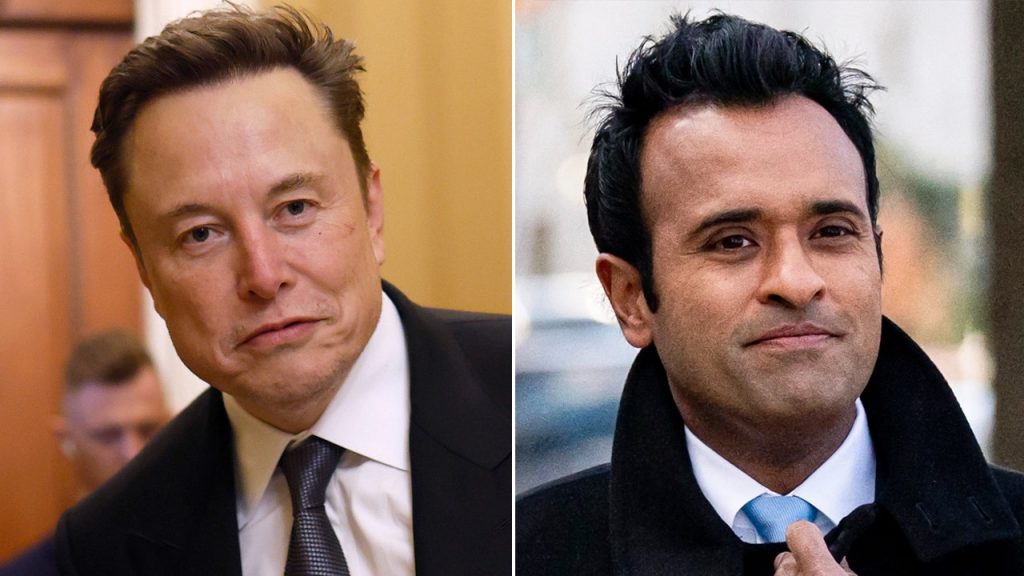The newly established Department of Government Efficiency (DOGE), co-led by Elon Musk and Vivek Ramaswamy, has emerged as a staunch opponent of a proposed stopgap spending bill, or continuing resolution (CR), designed to avert a government shutdown. Both Musk and Ramaswamy have publicly denounced the bill, characterizing it as a wasteful “pork-fest” laden with unnecessary spending and unrelated policy riders. Musk, leveraging his substantial social media presence, has actively campaigned against the CR, urging his followers to contact their representatives and express their disapproval. Ramaswamy, meanwhile, has proposed a drastically simplified one-page resolution as an alternative, arguing that it would maintain essential government functions without perpetuating excessive spending. This public opposition reflects DOGE’s core mission to curtail government waste and promote fiscal responsibility.
The proposed CR, a 1,547-page document released after protracted negotiations, has sparked considerable controversy, particularly among conservative Republicans. Their objections primarily center on the inclusion of non-essential provisions and what they perceive as excessive spending, particularly related to aid for Ukraine. These critics advocate for a “clean” CR, focusing solely on extending essential government funding without adding extraneous measures. This divide within the Republican party underscores the ongoing tension between fiscal conservatives and more moderate members, further complicating the passage of the spending bill.
Musk and Ramaswamy’s active involvement in the debate highlights the growing influence of non-traditional political actors in shaping public discourse and influencing legislative processes. Musk’s social media pronouncements and Ramaswamy’s proposed alternative resolution have amplified the conservative critique of the CR, putting pressure on Republican lawmakers to reconsider their support. This dynamic exemplifies the evolving relationship between social media, public opinion, and the legislative process, blurring the lines between traditional political advocacy and grassroots activism.
House Speaker Kevin McCarthy faces a formidable challenge in securing sufficient votes for the CR, given the opposition from within his own party and the precarious nature of his slim majority. He has acknowledged the need for Democratic support to pass the bill, highlighting the complexities of navigating the current political landscape. Reports suggest that McCarthy has been in communication with both Musk and Ramaswamy, indicating an attempt to address their concerns and potentially negotiate a compromise. However, the strong public stance taken by DOGE’s leaders suggests that they are unlikely to accept anything less than significant changes to the proposed legislation.
The possibility of a government shutdown looms large if the CR fails to pass. While essential services would likely continue, a shutdown could disrupt various government functions and potentially impact federal employees. While some, including Musk, argue that a shutdown is preferable to passing a flawed spending bill, others express concern about the potential consequences of such a disruption. This precarious situation further underscores the urgency of resolving the impasse and reaching a consensus on government funding. Retiring Senator Mitt Romney’s public query about former President Trump’s position on the matter further illustrates the complexity of the situation and the search for leadership within the Republican party.
The controversy surrounding the CR and DOGE’s opposition serve as a microcosm of the broader debate surrounding government spending and fiscal responsibility. The clash between those advocating for a leaner government and those prioritizing continued funding for existing programs highlights fundamental differences in political philosophy. The outcome of this debate will have significant implications for the future of government spending and the role of non-traditional actors in shaping policy decisions. The involvement of figures like Musk and Ramaswamy suggests a shift in the dynamics of political influence, with social media and public advocacy playing an increasingly prominent role.

